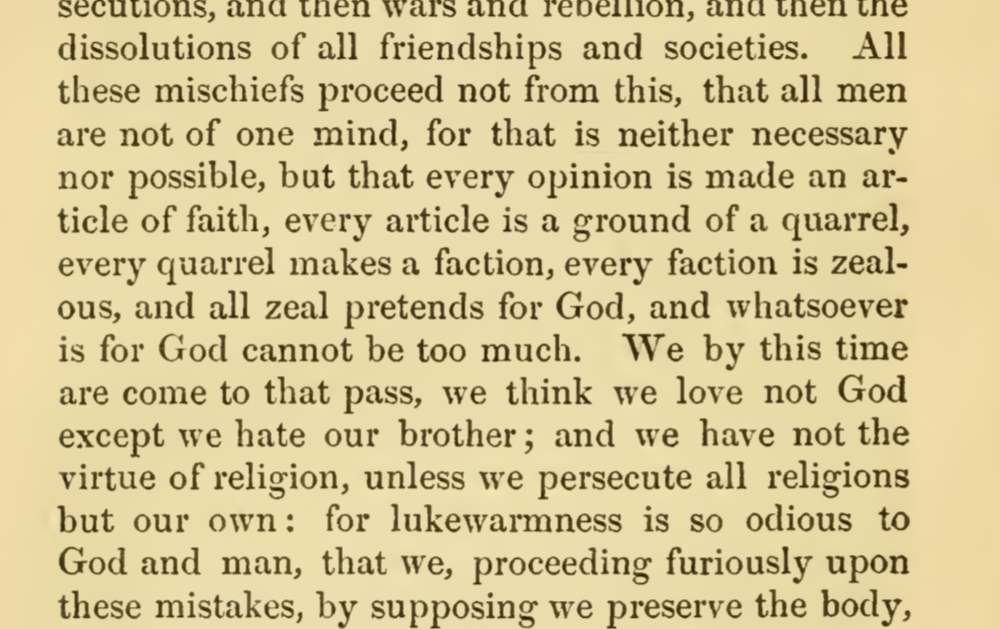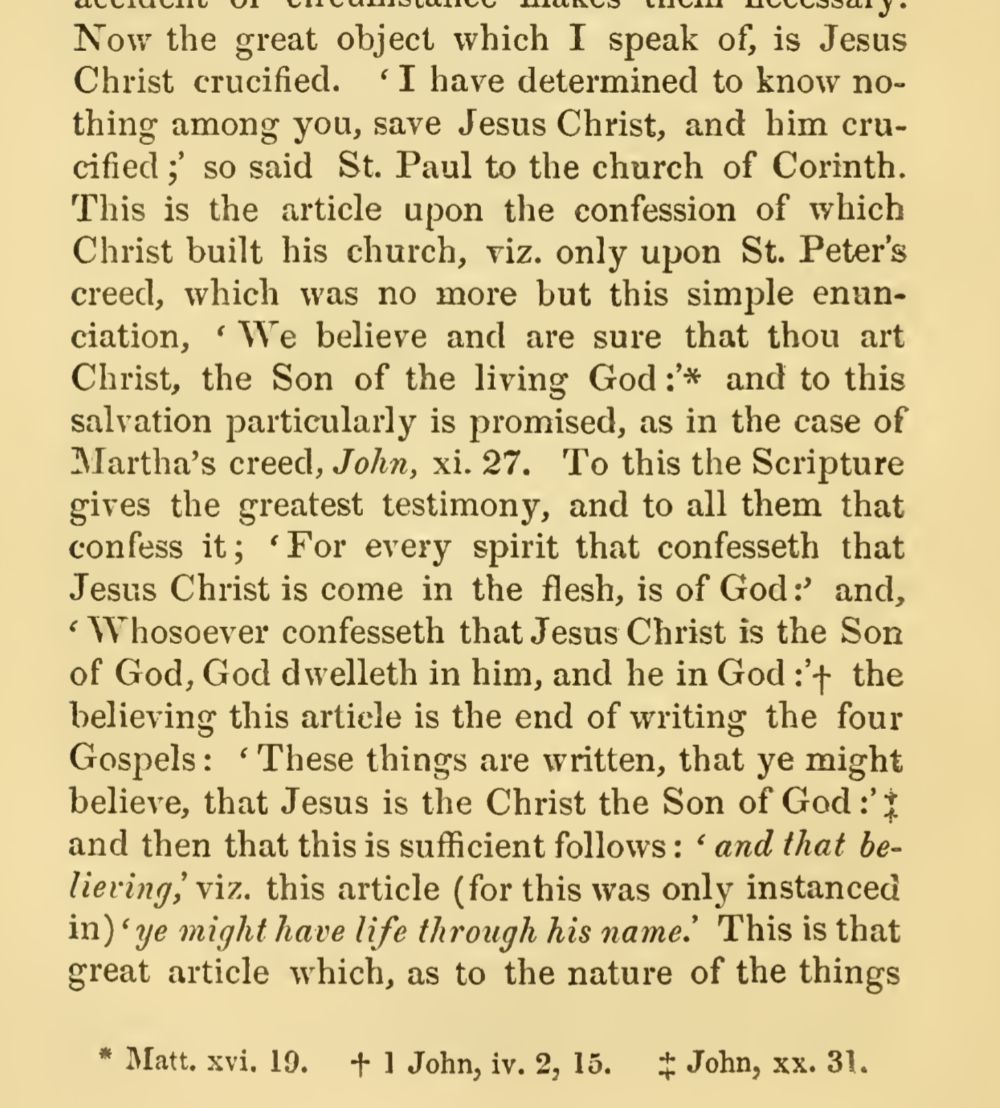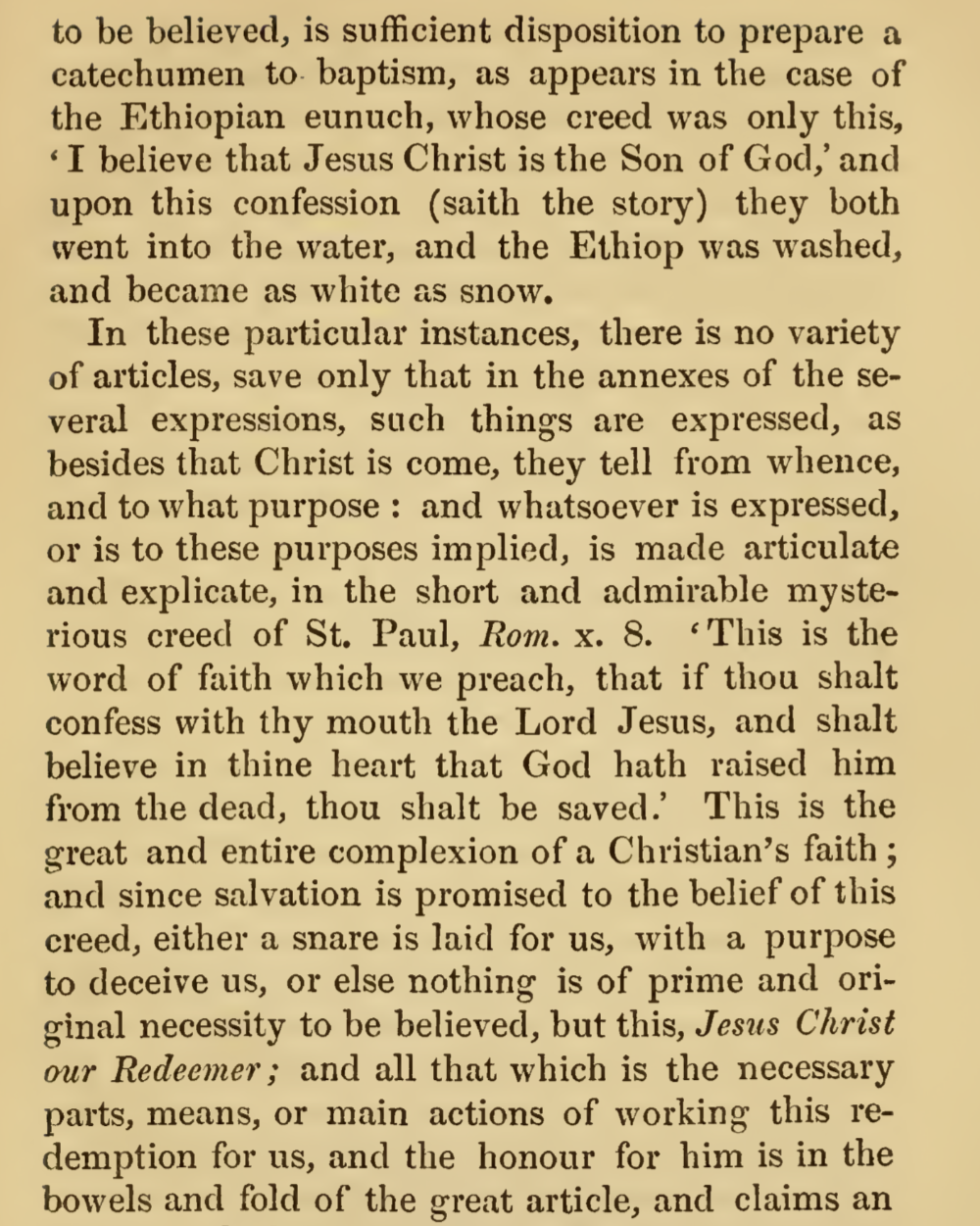
The God Card
This passage brought to my mind a reality that is simple and unavoidable but also profound, and that is the fact that there are thousands upon thousands of Christians in heaven who predate the organized Scriptures as we know them, and many who predate any written portion of the New Testament at all. (?)
Today, in Modern American Evangelicalism the Bible holds such a central, sacred position in our faith that this simple fact seems to be impossible and even slightly heretical. If the Scriptures are so crucial to the correct expression of our faith; if we are so dependent on the correct parsing and cross-referencing of various passages so that we can determine who are the real Christians and who are not, then how could they possibly be any Christians before the writing of the Scriptures? If there are whole denominations that espouse that there is only one valid translation and all others lead to error, how did humanity ever navigate the complex and treacherous waters of faith before our race was blessed with this translation? How did people know they were right, correct and pure in thought and expression, before Piper, or Calvin, or Augustine wrote their theological treatises for us to squabble over? How did people survive without having so many different ways to parse and compare their Christianity; without knowing clearly and in great detail who they were better than and why?

As we can see from this excerpt, while this attitude of division is pernicious today, it is not new. As my wife and I have navigated through the many iterations of our church ministry we have often encountered this same escalation of spiritual urgency. We refer to the attitude of “whatsoever is for God cannot be too much” as playing the God card to gain the upper hand in a disagreement or other power dynamic. It is a convenient way to win an argument without needing to put forth any reason or logic. It is also an excellent way to polarize any discussion, no matter how trivial, into a crucial matter of faith, especially when both sides start playing the God card against each other, like some mad game of poker where everyone only has kings in their hands.
When the above passage was written the God card game was being played in England on a national level, with grave consequences for the losers. Calvin’s Puritans were vociferously imposing Presbyterianism on the country, displacing Episcopalianism, deposing, imprisoning, exiling, or executing priests and bishops for treason. Taylor wrote A Discourse of the Liberty of Prophesying after he had fled to Wales to escape Oliver Cromwell’s new, reformed regime.
The spark of Reformation that had kindled such a flame in Europe had finally reached his corner of the world, but by this time the fire had begun to consume its own and he could clearly see that hatred had become a strange new article of faith in his country. It was in the middle of this national insanity of religious and political intolerance that he chose to ask the questions that could bring his countrymen back to the core components of their faith.


This is the great an entire complexion of a Christian’s faith.
Here Taylor leaves behind the caustic and deadly arguments over which cantilevered cornice of dogma should comprise the new facade on the house of faith and makes his way quietly down into the ancient stone footings to closely examine the cornerstone and foundation of the edifice he holds so dear. Here he finds plain, simple statements of faith. Unadorned, seeming extemporaneous answers to one simple question. “Who do you say that I am?” In his writings to us he lets the light of reason play over the surface of these foundations and I believe we can apply much of what we learn from Taylor to the position was find ourselves in today.
He mentions several early creeds in this section so let’s list them out.
St. Martha’s Creed - John 11:27
“She said to Him, ‘Yes, Lord, I believe that You are the Christ, the Son of God, who is to come into the world.’”St. Peter’s Creed - Mat. 16: 15-18
“He said to them, ‘But who do you say that I am?’ Simon Peter answered and said, ‘You are the Christ, the Son of the living God.’ Jesus answered and said to him, ‘Blessed are you, Simon Bar-Jonah, for flesh and blood has not revealed this to you, but My Father who is in heaven. And I also say to you that you are Peter, and on this rock I will build My church, and the gates of Hades shall not prevail against it.’”St. John’s Creed - I John 4:15
“Whoever confesses that Jesus is the Son of God, God abides in him, and he in God.”St. Paul’s Creed - Romans 10:9
“That if you confess with your mouth the Lord Jesus and believe in your heart that God has raised Him from the dead, you will be saved.”
It is important to understand that two of these creeds came before Jesus’ death and Peters’ was a sufficient declaration of faith to lay the foundations of the church. The other creeds came before there was a firm concept of the Trinity in Christian doctrine or the Nicene Creed or even New Testament scriptures. And while these things are crucial expressions of our beliefs and extremely necessary to our faith, their utility is valid only to the extent that they strengthen and clarify in our minds and hearts the true nature of Jesus as God incarnate, our risen Lord, pointing us back to the potency of these original creeds. To assign to these tools of our faith any greater utility places us in the illogical bind of saying that there we no Christians before these tools existed, or else we must create a kind of tiered system where some Christian are more Christian than others, and that is a clear absurdity. Right?
Why is this important to us today?
It is the nature of humans to seek improvement and clarification, these are noble goals when they are used for the flourishing of others. There is much profit to be gained from theological discussion and the exhortation of preaching. But when these things calcify into the self-referential quest for purity and surety our human proclivities are distorted and our natural charity towards others is dulled, or worse, it is ridiculed as weakness.
The danger and harm are compounded when, as in Taylor’s time, these attitudes are carried over into the arena of political policy and power. When the weight and might of the State is used to enforce matters of faith then all are in danger of execution because there is no end, no resting point in the pursuit of purity. It is a fractal pursuit, always finding more and more differences that it can carve away at, finding increasingly finer points of separation, while never never reaching its goal of surety.
The introduction to this work, written by Rev. R. Cattermole, lays out the problem for us in clear terms.
“In a country, where religion is purely a political engine, as was the case in pagan Rome, toleration is impossible, because under such circumstances treason and nonconformity are identical.” p. xi
“If the church, in the prosperous days of Elizabeth and James, maintained her prerogatives against the Puritans with the severity of a parent assailed by the unreasonable clamours of rebellious children, these latter, however bitterly they complained of the hardship of their own position, never denied, upon general principles, the right of the former to persecute; 'their ardour for toleration was nothing more than impatience of individual suffering.’
In the multiplication of sects that took place during the latter part of that period, and in the reign of the unhappy Charles, the animosity of each towards every other, equalled that which all in common bore towards the establishment. Each strove for the supremacy of its own opinions- none for an equal charitable tolerance of all speculative tenets alike; and when the most numerous and powerful of the religious factions opposed to the Church of England, at last obtained the ascendancy, its members proved too clearly by their arrogance and persecuting spirit how little effect calamity, which softens and corrects the passions of individuals, has in diminishing the hatreds and smoothing the asperities of sects and parties.” p. xv
This timely description of what could easily describe our current national flirting with Christian Nationalism should be for us a cautionary history lesson on faith, hubris, and power. And when we ourselves are tempted to play the God card we must pause and finally read what is written on it. It is then we will find this simple question “Who do you say that I am?” And there is nothing more required of our lips or the lips of our opponent than to say than. “You are the Christ, the Son of the living God.”

